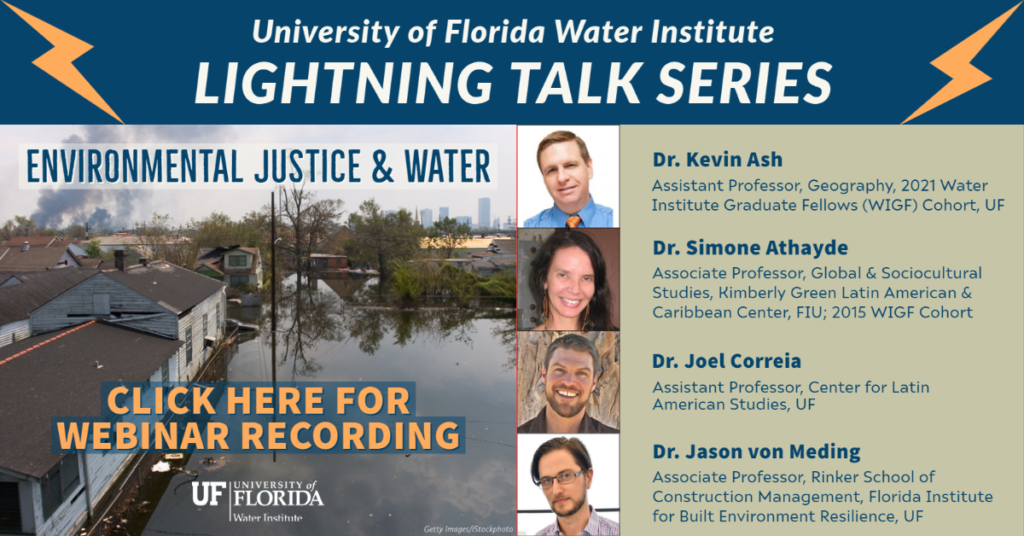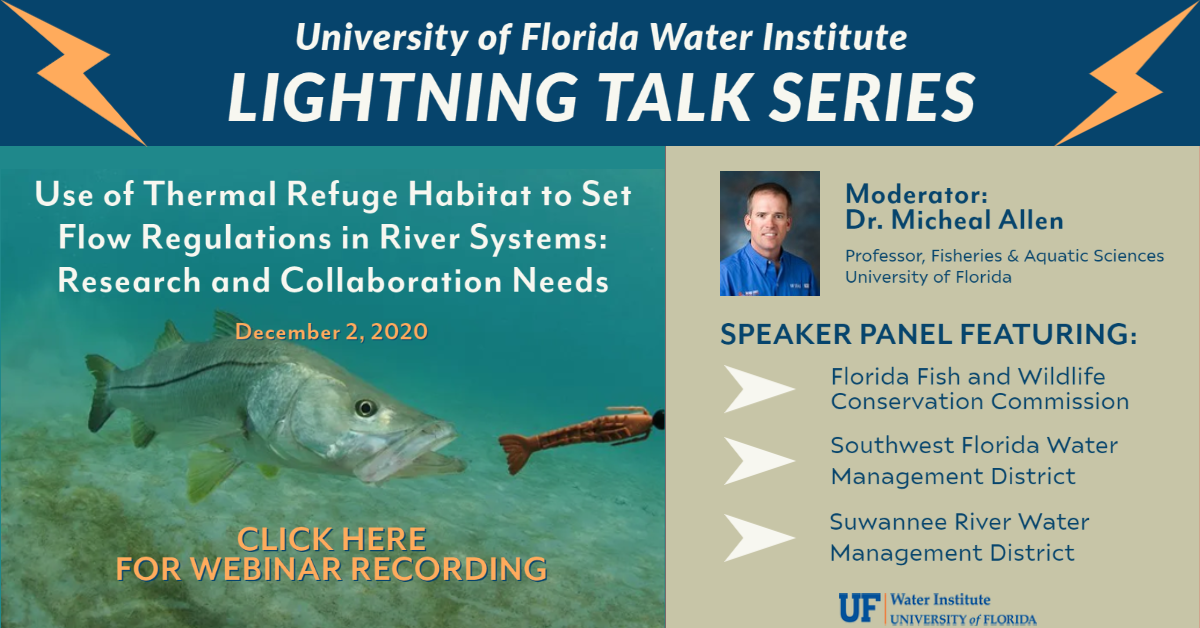Lightning Talk Series
The Water Institute is hosting a Lightning Talk Series this fall and spring semester to facilitate learning about ongoing water-related research, engage with faculty members and stakeholders in the water research community and promote new relationships/collaborations among researchers.
Past Lightning Talks
Click on the image above to view a recording of the February 3, 2021 webinar.
Abstract: This lightning talk webinar focuses on environmental justice and water issues, with case studies from the U.S. and South America on inequitable impacts of climate hazards, landscape change and hydropower projects on Indigenous and marginalized communities. Dr. Jason von Meding will present his research on how maldevelopment leads to the creation of risk and therefore unequal and unjust impacts in the face of environmental hazards and climate change, exploring how different narratives and the reframing of research and practice is needed as an act of resistance. Dr. Kevin Ash will present his research in the areas of vulnerability, resilience, and risk communication of weather and climate related hazards in the southeastern US, and will touch on upcoming research on barriers and opportunities associated with reclaimed water in Florida. Dr. Joel Correia will discuss how the expansion of cattle ranching in the South American Chaco has produced novel waterscapes with racialized vulnerabilities to flood and drought regimes that draw attention to effects of settler colonization on Indigenous water access. Dr. Simone Athayde will present her research on social-ecological impacts of hydropower on Indigenous peoples and local communities across the Amazon, focusing on the different dimensions of socio-environmental justice.
Click on the image above to view a recording of the December 2, 2020 webinar.
Abstract: Thermal refuge from groundwater springs provides winter habitat for tropical/subtropical species such as expanding snook populations and manatees in northern Florida. However, changes in spring flow due to droughts and water withdrawals could influence availability of thermal refuge habitat during winter. Management agencies are exploring the use of thermal refuge availability when setting minimum flow and level regulations to protect aquatic systems. These presentations will highlight ongoing work in the region for thermal refuge monitoring and evaluation, with a focus on refuge habitat for snook populations, which support popular fisheries. The webinar will provide opportunities for academics and state agency partners to discuss methods for monitoring and predicting thermal refuge habitat, and we encourage participation from those interested in spring flow and thermal imaging of freshwater systems.



